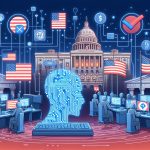Introduction
The world’s most powerful voices no longer sit only in government offices or film studios — they live online, amplified by algorithms that shape public thought. Technology has transformed influence into a measurable, programmable force, blurring the boundaries between celebrity, politics, and activism. The digital revolution has created a new hierarchy, where attention equals power and data fuels control.
In this new order, the internet acts as both a stage and a battlefield. Leaders, artists, and innovators compete not only for approval but for visibility, hoping their ideas survive the rapid churn of digital trends. This ongoing collision between tech and fame defines how modern society interprets truth, leadership, and change.
Technology as the Architect of Modern Power
Technology has become the invisible architect of influence. Governments use AI and analytics to predict voter behavior, manage crises, and shape national image. Political campaigns no longer rely solely on rallies or speeches — they depend on algorithms that analyze emotion and engagement.
But this transformation comes with consequences. When digital platforms decide which content thrives, power shifts away from institutions and toward systems driven by popularity. The danger lies in the subtle manipulation of public perception disguised as connectivity.
Celebrities in the Political Arena
Celebrities have evolved into modern diplomats. Stars like Beyoncé, Elon Musk, and Malala Yousafzai command audiences that rival entire nations. Their opinions can inspire movements, raise funds, or pressure policymakers, turning social media into a form of soft diplomacy.
However, fame alone is not enough. In a hyper-aware online environment, authenticity has become the currency of trust. Those who speak without depth or consistency often face backlash, while genuine advocates earn global respect and lasting credibility.
AI and the Battle for Digital Reality
Artificial intelligence now curates what billions of people see and believe. From deepfakes to automated journalism, the tools designed for convenience are reshaping our understanding of truth. Misinformation spreads faster than facts, eroding public confidence in traditional media.
At the same time, AI holds potential to protect integrity when used responsibly. Machine learning can identify false information, analyze media bias, and promote transparency. The challenge lies in ensuring technology strengthens democracy rather than distorting it.
Global Politics in the Age of Connectivity
The internet has turned global politics into a real-time performance. Governments monitor social trends, respond instantly to crises, and compete for international credibility online. Diplomatic conflicts often unfold first on social media, shaping global narratives before policy even begins.
This constant connectivity empowers smaller nations and activists to reach global audiences. Yet, it also exposes vulnerabilities — misinformation campaigns, cyber warfare, and data breaches are now tools of modern statecraft. The balance between openness and security defines this new era of diplomacy.
Tech Companies as Political Players
Technology companies like Meta, Google, and TikTok hold extraordinary control over information. Their algorithms decide which ideas go viral and which disappear. This influence extends beyond entertainment into public opinion, elections, and international relations.
Governments are beginning to recognize the need for regulation. The European Union’s AI Act and similar laws worldwide aim to limit corporate overreach. The future of democracy may depend on how effectively societies ensure that innovation serves humanity rather than manipulates it.
Entertainment and Ethics in a Digital World
Entertainment has merged with activism. From documentaries about climate change to films that tackle social justice, creative industries now shape conversations once reserved for policymakers. Streaming platforms and influencers have become the new think tanks of public opinion.
But with influence comes ethical responsibility. As audiences demand honesty and social relevance, entertainers must balance artistic expression with accountability. The next phase of digital culture will reward creators who combine creativity with conscience.
FAQs
How do algorithms influence political outcomes?
Algorithms analyze data to predict and influence voter behavior, shaping campaign messages and media visibility.
Can celebrities really affect political change?
Yes, through sustained advocacy and authentic engagement, celebrities can drive awareness and push governments toward reform.
Why is AI a concern for journalism?
AI-generated misinformation threatens public trust, making it essential to verify sources and regulate synthetic content.
Are tech giants more influential than world leaders?
In many ways, yes. They control global communication channels, giving them immense soft power over societies and politics.
How can entertainment impact social issues?
Movies, music, and online content often reach wider audiences than policy debates, making them powerful tools for awareness and change.
Conclusion
Technology has redefined how humanity measures power, credibility, and influence. The once-separate worlds of politics, celebrity, and technology now operate as a single, interconnected ecosystem driven by visibility and data. The individuals and institutions that master this balance shape the global agenda.
In this digital age, the future of truth and democracy depends on how responsibly influence is used. Whether through a viral post or a major innovation, real progress will come from those who pair visibility with vision — using technology not just to dominate attention, but to drive meaningful change.










